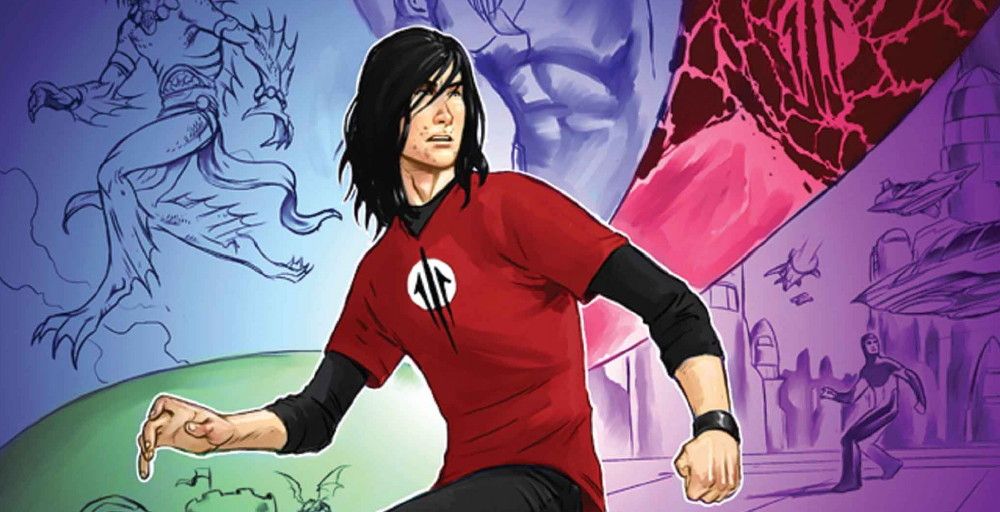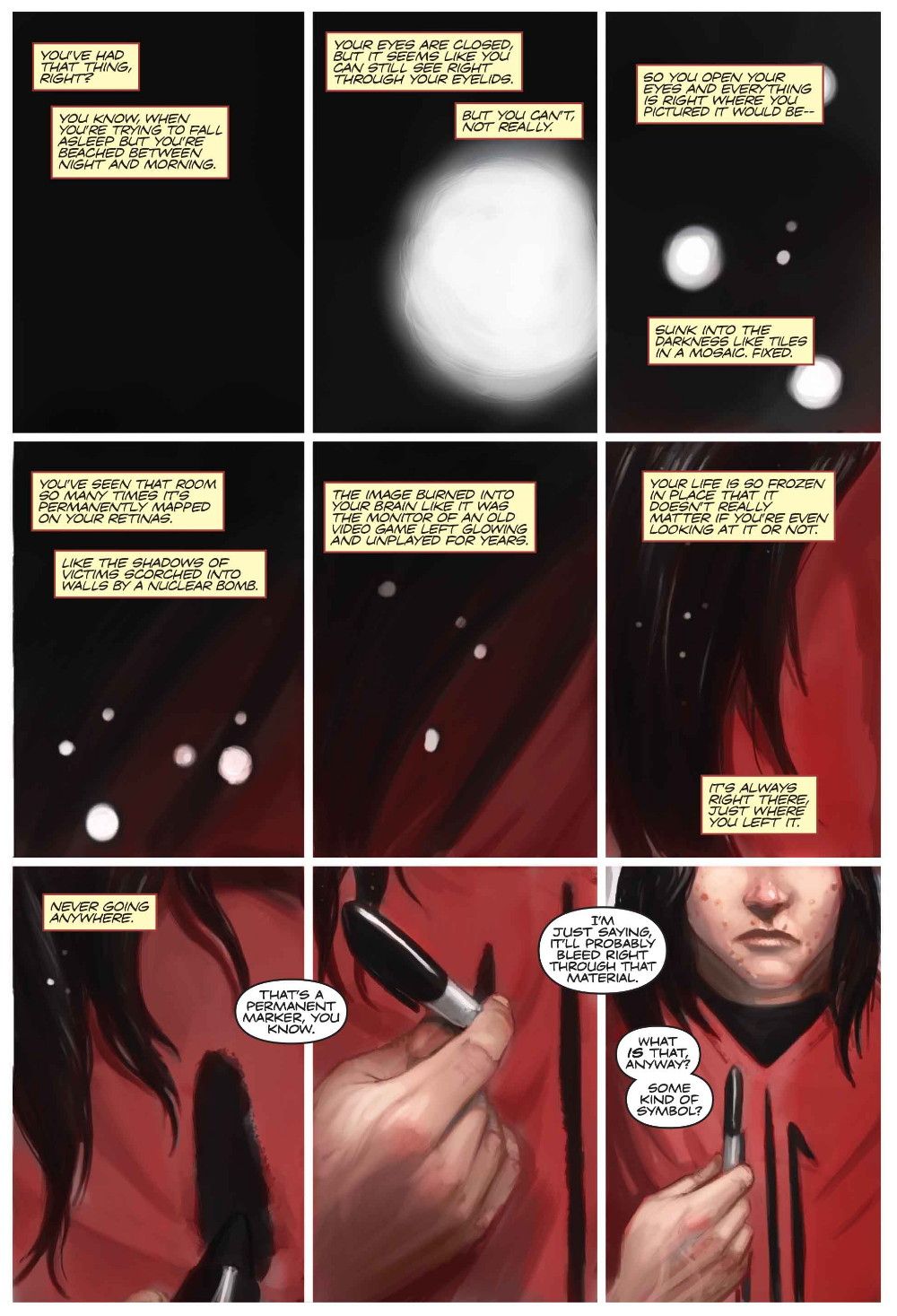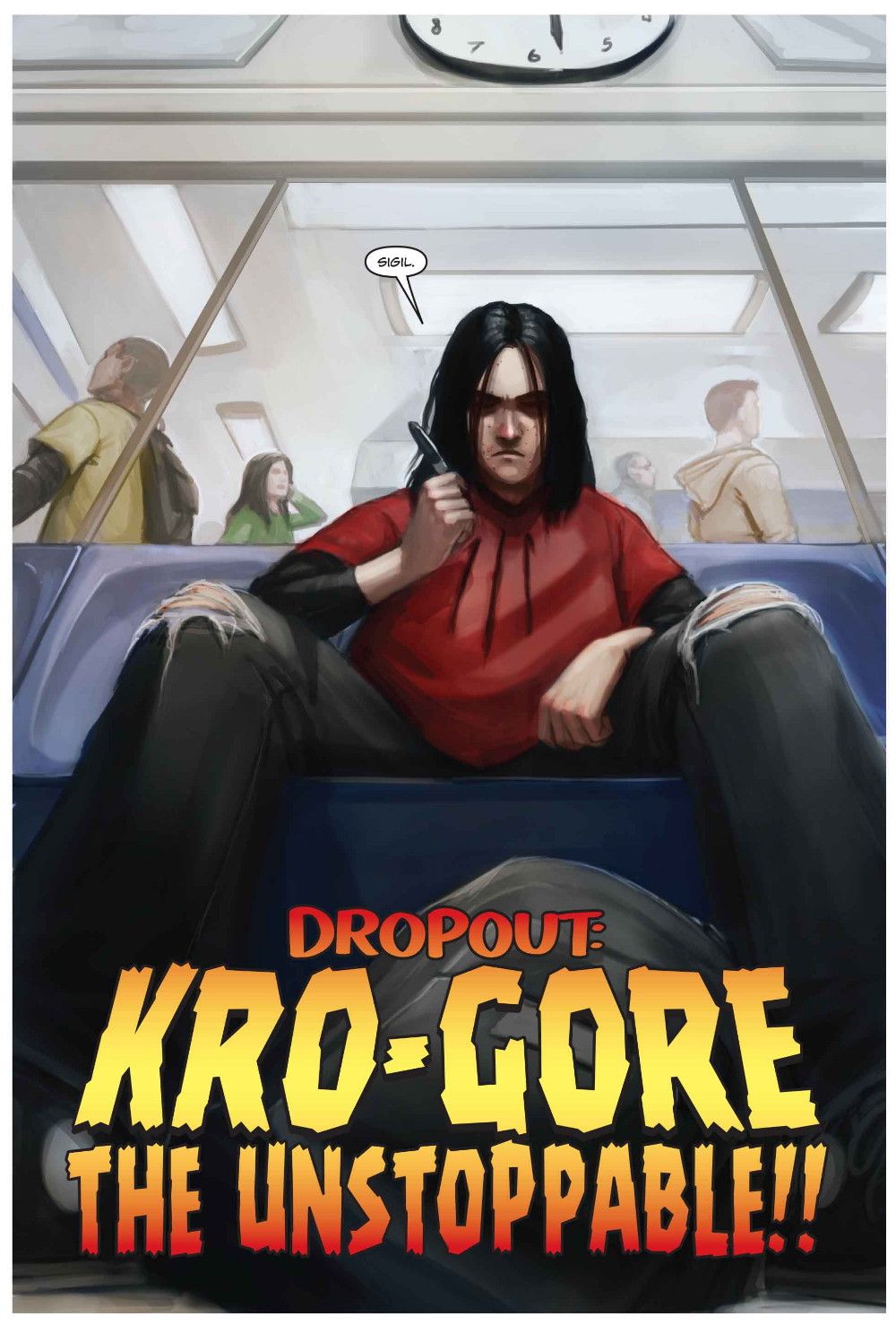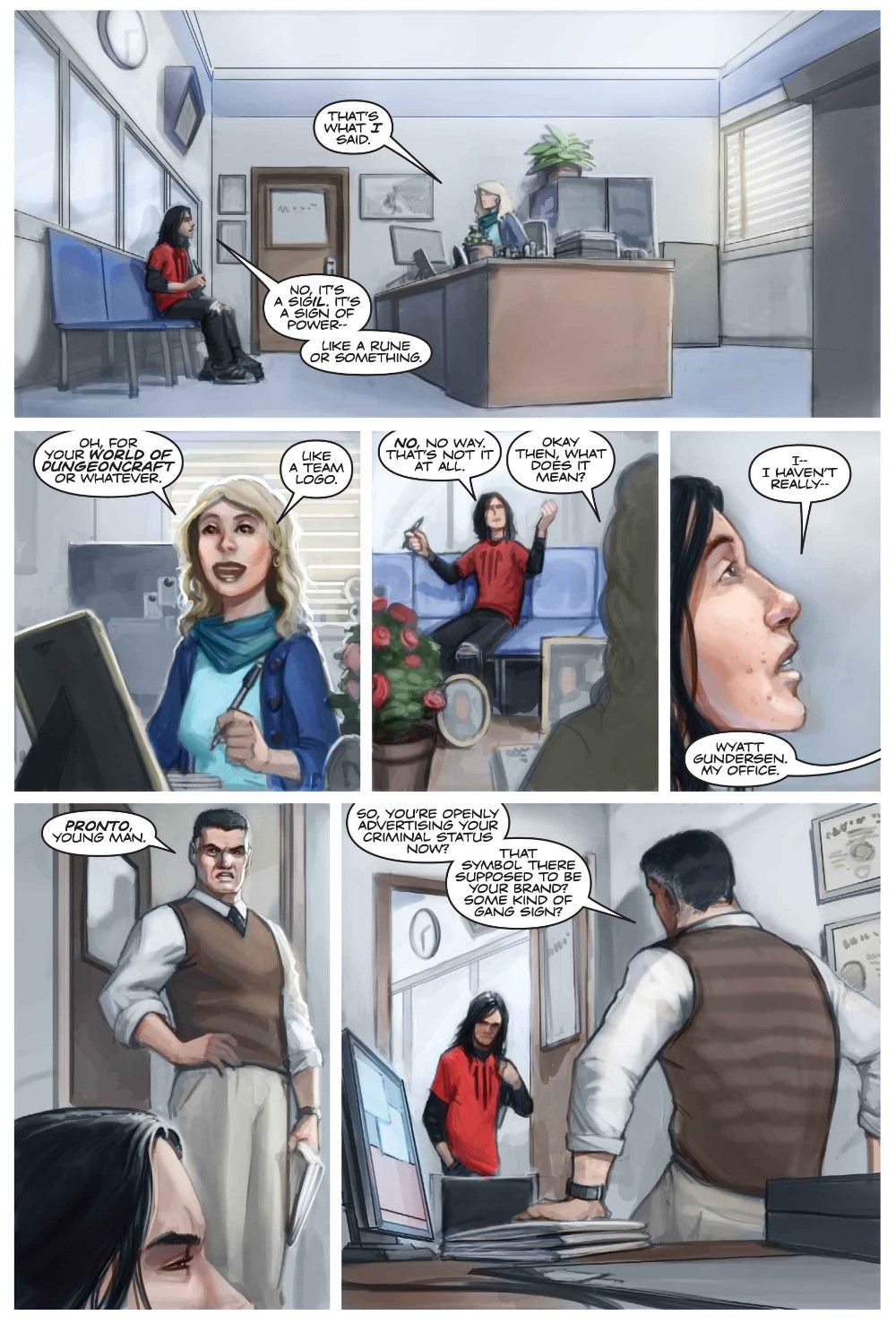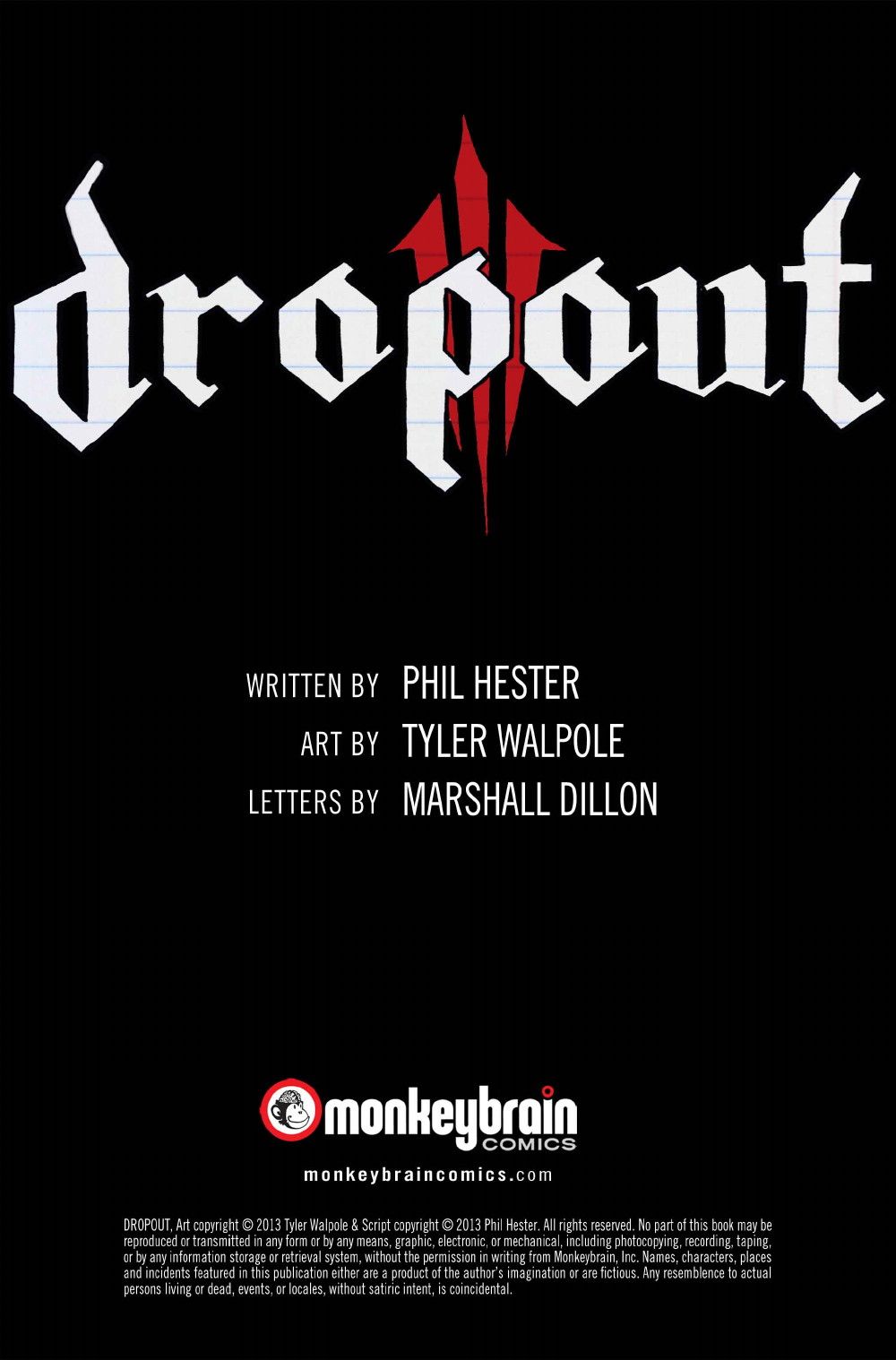Monkeybrain Comics announced and released five new titles last month at Comic-Con International, including Phil Hester and Tyler Walpole's Dropout. Hester and Walpole couldn't be at the convention, but were willing to talk with me not only about the new series, but their collaboration in general, including a personal favorite of mine: their 2005 canceled-too-soon series Stronghold.
Dropout is available for purchase from Monkeybrain through comiXology. Tim O'Shea recently reviewed it for Robot 6.
Michael May: You guys worked together before on Stronghold. How did you meet and what drew you toward wanting to work together?
Tyler Walpole: Phil and I are both from Iowa and when I was in high school he was one of the only professional comic book artists I had met in person (at a little comic book show at a local mall). I always liked him as an artist, but when I read his comic, The Coffin, I was blown away with his writing! So when he expressed interest in working with me, I jumped at the chance.
Phil Hester: I met Tyler when he was just a kid, and I mean really just a kid. He and Andy Brase were kicking around the Iowa comics scene as teens and I could tell both guys were going to go places. I guess I've always been looking for something to work on with Tyler and when Stronghold popped up, I knew he'd be right for it.
Any chance of more Stronghold?
Phil: I think so. The original series got cancelled when sales couldn't justify our rates to the publisher, so they let us go. We've been looking for a place to finish it, and have come close a few times, but the right fit hasn't come along. I hope we do soon because it's a really engaging story and Tyler was just about to get to draw all the good stuff.
What's the elevator pitch for Dropout?
Tyler: Well, without giving away too-much, I think you could describe it as a very unconventional coming-of-age story that's going to give us the opportunity to explore fantastic new worlds through Wyatt's eyes. I think we've got some twists in store that are going to surprise people.
Phil: Wyatt Gundersen is a troublemaker. Not a charming scoundrel or misunderstood genius, but a sullen, disruptive, unwashed, loser punk. When Wyatt is transferred to a cutting edge charter school designed to educate wayward students, he soon learns that it's secretly an academy for inter-dimensional soldiers, sort of a first line of defense against encroaching alternate dimensions.
Being a douchebag is an essential element of the psych profile of every successful dimension hopper. You HAVE to be a jerk to keep your psyche intact when you find yourself in an altered dimension. So, the kid goes to school each day knowing that sometime between lunch and gym he's probably going to be thrown into a Mirror-Mirror type universe that he will have to find a way to keep from overtaking our own.
What inspired it? Where did the story come from?
Phil: Well, primarily I wanted to give Tyler cool stuff to draw. Each chapter is essentially a new universe to design, so Tyler really gets to show off his remarkable design sense. Also, I'm kind of sick of the fake-loser in comics. Every time you see a nerdy, geeky, marginalized guy in pop culture he turns out to be a glamorous stud underneath it all. Like the mousy librarian removing her glasses to reveal she's really a lingerie model. I want Wyatt to stay a loner and an outcast to show the value of that position in society. Because, let's be honest, we all feel like that person from time to time. I shouldn't have to smell good (though I do) or wear the right clothes (I don't) to be valuable. Stay mousy!
Tyler, when Phil talks about formatting the story in a way that gives you lots of cool stuff to draw, what kind of stuff are you hoping for? What's your favorite subject matter and what draws you to that?
Tyler: Yeah, I'm pretty excited to hit our full stride on this series. Starting in issue two, we're going to be shaking pretty much every visual element in the book, and that should continue through right up until the end.
As far as my favorite things to draw goes...that's easy. Monsters. Anything with an element of the fantastic is a joy, but when I get to work on the nasties with sharp teeth and claws, I'm really having a ball.
Wyatt's a pretty troubled kid who's also started a lot of trouble, if his school principal is to be believed. What do you want readers to see in him that maybe isn't obvious at first look?
Phil: The kid has a lot of anger and it comes out in unproductive ways, but we also see that he, like everyone, has people he cares about, even if they don't care about him, and that can be fertile enough ground to grow a heroic spirit.
Tyler, how do you relate to Wyatt? And how do you communicate that visually?
Tyler: Well, its safe to say that I had some friends in high school that were not unlike Wyatt. And the scene where he gets in trouble for what he's been drawing in his sketchbook definitely resonates with me. Also, Phil tells me that I am a well-known douchebag in certain circles. So, there's always that. ;) Visually speaking, I have a teenage son of my own, so I can easily reference him for all of the scowly goodness we're going to be seeing from our Mr. Gunderson as he comes into his own.
What's the collaboration like between you and Phil? Does his background as a visual artist impact the partnership at all?
Well, in our previous collaboration, he actually did his writing over very simply drawn page layouts, so from that experience I've gotten a kind of behind-the-scenes look at his process. I think that helps me anticipate what he's trying to communicate to the reader this time around, working in a more conventional script format. He also really knows how to get right to what's important for me to focus on, in visual terms, to bring the right emotional tone to each scene.
Did you guys create Dropout as an ongoing series or is there a finite story that you want to tell?
Phil: It has a definite arc, but is open-ended enough to continue indefinitely.
What makes Monkeybrain the right publisher for this?
Phil: Our Stronghold experience was fraught with so much bureaucratic static that we were looking for a place to present this with as little interference as possible. [Publishers] Chris [Roberson] and Alison [Baker] made that a clear selling point from the beginning. They say yes or no to the project. If it's yes, you fly that paper airplane right out the window and see how it does. Although I guess there's no paper in the equation with digital comics. Having the great Marshall Dillon on board as letterer/wrangler makes this process all the more enjoyable. He isn't just a great letterer, but offers editorial insight that helps guide the story where it needs to go.

